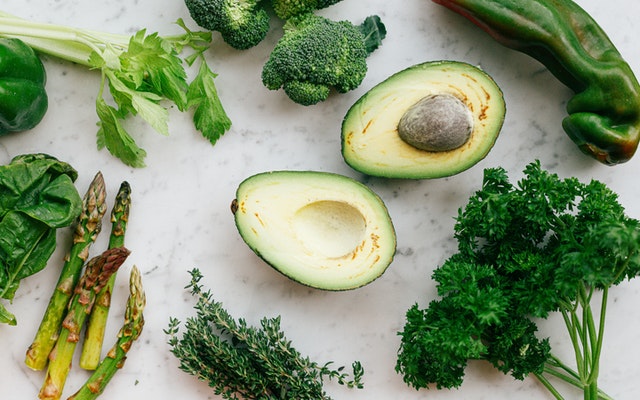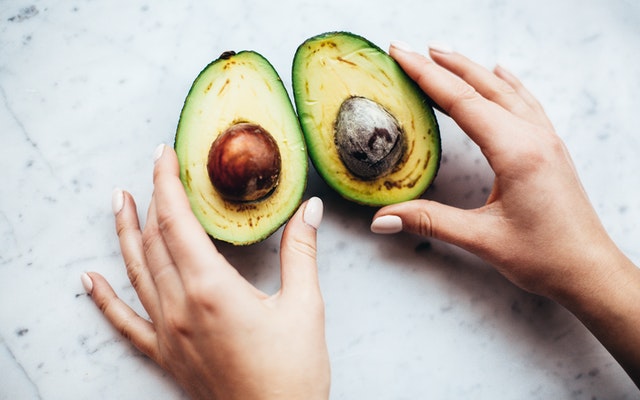As the consumption of avocados has become more and more common, and even very popular, world production has exploded in 10 years – an increase of 60 to 70%. Tex-Mex cuisine is the most important user of avocado, where it is used to prepare guacamole. In the other regions of the world, it can be used as much in salty dishes (salads, rice preparations) as in sweet dishes (drinks, desserts). The “avocado toast”, a food trend that appeared in 1999 across the Atlantic and became viral through the arrival of social networks, has contributed to the popularity of the fruit. Its sweet flavor and creamy texture have made it a must-have food.
A fruit from Mexico
The avocado is a large berry with only one seed, which grows on the avocado tree. The fruit, like the tree, is native to Mexico. Besides, this country is still the first world producer, before the Dominican Republic, Peru, Spain, Chile and Israel. The most commonly consumed variety is the Hass avocado, which is characterized by its grainy skin that turns purple when ripe. But there are other varieties such as the Fuerte avocado (pear shape, dark green skin), the Ettinger (very elongated, smooth skin) or the Nabal avocado (round, smooth skin).
What are the nutritional qualities of the avocado?
First characteristic of the avocado: it is caloric (169 kcal for 100g of pulp), because of its high content in lipids. But the fats which it contains are considered good for the body, because they are mono-unsaturated (the famous “good fats”). It is also rich in water, despite its dense flesh, and in fiber.
But its micronutrient content is also interesting and a source of benefits:
Like the banana and the sweet potato, the avocado is well endowed in potassium. Potassium contributes among other things to the proper functioning of muscles – including the heart muscle.
It also contains trace elements essential to the body: copper (health of body tissues, protein synthesis), iron (hemoglobin synthesis), zinc (protein and lipid metabolism, immune system booster) and manganese (bone health, antioxidant, macronutrient metabolism).
It is not devoid of vitamins, on the contrary! Its content in vitamin C, vitamin E, B vitamins and vitamin K make it an excellent food for health.
What are the health benefits of the avocado?

The rich composition of the avocado makes it an undeniable health ally:
- It is excellent for the heart. The monounsaturated fatty acids, the potassium, the iron and the copper which it contains contribute to the good cardiac health – reduction of the risk of arrhythmia, tissue resistance, good oxygenation of the muscle, reduction of bad cholesterol.
- In extenso, the avocado is a reliable source of lipids for people with a too high LDL. Numerous studies have shown, despite its fatty structure, that it has a positive effect on hypercholesterolemia. It can also be consumed by diabetics, because its carbohydrate content is low, compared to other fruits.
- The avocado is a fruit recommended for sportsmen. Its composition favors the good contraction, nutrition and oxygenation of muscles.
- It is also beneficial to the immunodepressed or to the people sensitive to the viruses. The vitamins and minerals it contains strengthen the immune system and cell renewal.
- The avocado is also the ally of the persons prone to the venous insufficiency and the water retention. Its high potassium content and the presence of vitamin K in its flesh allow to fluidify the blood circulation, while encouraging the elimination.
- It is a “beautiful skin” food. Vitamin C, copper, provitamins B, vitamins E are all antioxidant micronutrients, favorable to the quality of the skin.
As much to say that the avocado comprises many health benefits. Moreover its consumption is recommended since centuries by the traditional medicines (Central America, Ayurvedic medicine).
Can we eat avocado if we are concerned about our weight?
The avocado being a very caloric food, it is important to take this fact into account, especially if one follows a hypocaloric diet or low in fats (of type “High Carb Low Fat”, for example). Nevertheless, the avocado abounds in undeniable benefits. So, even if you are concerned about your weight, you can enjoy an avocado from time to time. Moreover, its fibers make it very digestible, soft with the sensitive intestines and especially, very satiating.
One can consume the avocado of thousand and one manners, without risking to gain weight:
- With a little pepper and lemon juice, it makes a simple and delicious starter, not necessarily more caloric than celery remoulade or a vegetable macedoine, too rich in mayonnaise.
- Mixed with a banana and a little vegetable milk (almond, soy, rice) or low-fat cottage cheese, it is an ideal energy smoothie before a sports session.
- It is the essential ingredient of the avocado toast. Simply crush half an avocado on a slice of wholemeal bread and add your own toast to taste: poached egg, sun-dried tomatoes, arugula, spinach shoots, spices, etc. Dieters should avoid using olive oil and prefer a little vinegar or lemon to season their toast.
- Of course, it can also be used to prepare a homemade guacamole, with the condiments of your choice.
- Avocado also goes very well with seafood. Combine it with smoked trout and cottage cheese for delicious sandwiches, or with shrimp and coriander for refreshing verrines.
- Also, try avocado for dessert. Avocado purée is the perfect accompaniment to a fresh fruit salad (apple, pear, red fruit).
If you know more informations like these, Share them with us.

